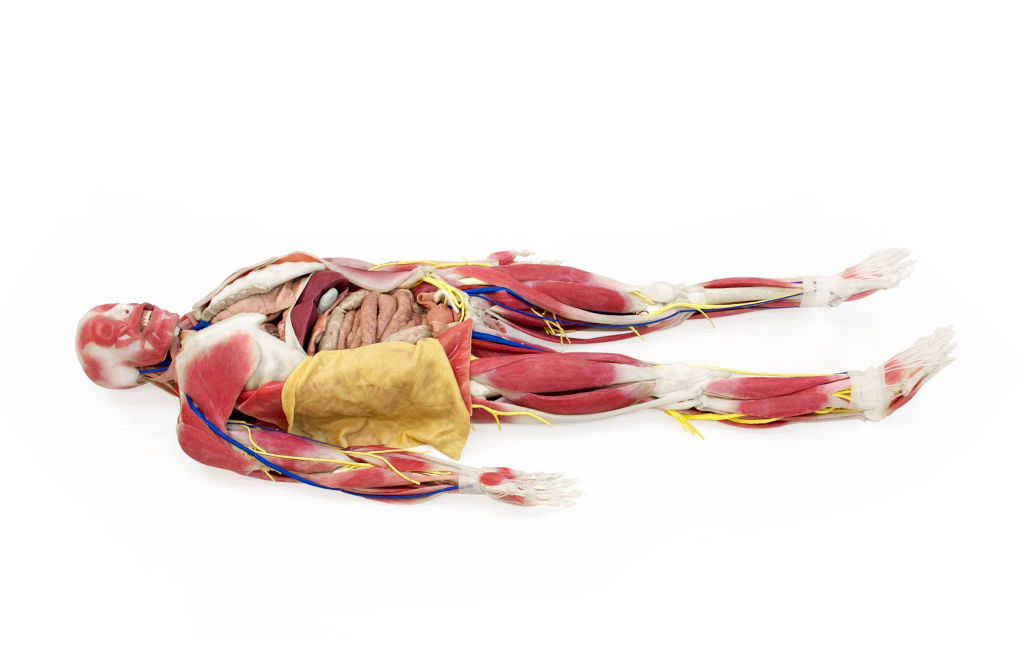Sunscreen Mist
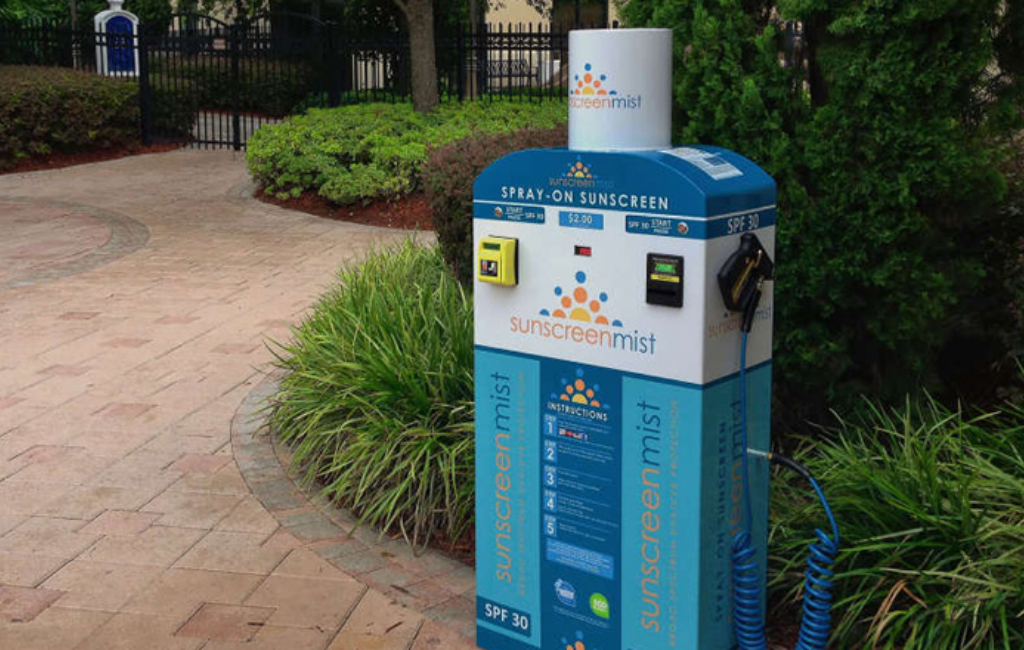
NO DEAL
EPISODE SUMMARY
🕓 Air Date: May 8, 2015
Asking For:
$400,000 for 15%
Investor:
No Deal
Deal:
No Deal
PRODUCT SUMMARY
Sunscreen Mist offers innovative sunscreen application machines, including booths and stations, providing a convenient and efficient way to apply the FDA-recommended amount of sunscreen.
WATCH HERE
IN A RUSH?
Click these to jump to the section you want to read.
Background Story
Sunscreen Mist, founded by Tony Fayne and Josh Kaplan, originated from a shared concern about the inconvenience and improper application of traditional sunscreen methods. The duo, presenting on Shark Tank, introduced themselves as Tony Fayne and Josh Kaplan, the minds behind Sunscreen Mist. The entrepreneurs presented themselves as a team united under the vision of revolutionizing sun protection. Their motivation stemmed from the realization that skin cancer cases were on the rise, making it the most prevalent form of cancer.
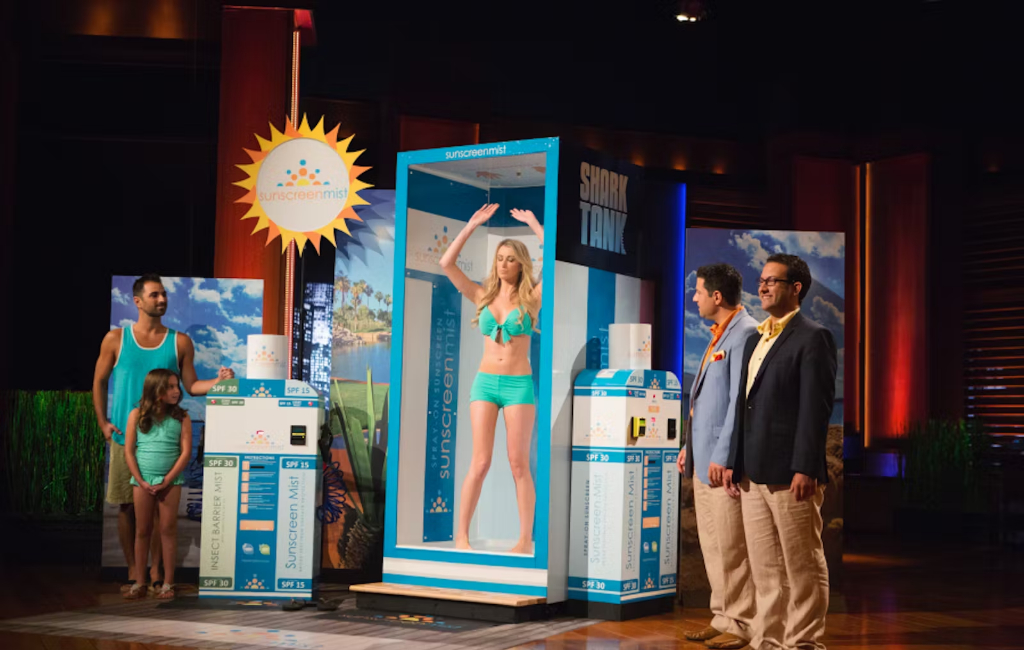
Tony Fayne and Josh Kaplan brought diverse backgrounds to the table. Their introduction focused more on the pressing issue they aimed to address — the incorrect and inconvenient application of sunscreen, leading to a surge in skin cancer cases. The founders highlighted their commitment to providing a solution to this problem through the introduction of Sunscreen Mist’s innovative machines. These machines, described as the first-ever of their kind, promised to apply the FDA-recommended amount of sunscreen in just seconds.

The founders emphasized the simplicity of the process, with the machines offering a quick and efficient way for individuals to protect themselves from the sun. In crafting their background story, Fayne and Kaplan portrayed themselves as individuals with a mission — not only to address a pressing health concern but also to bring a convenient and effective solution to the market. Their pitch aimed to garner support and investment from the Sharks, showcasing the potential impact of their product in the broader context of combating the alarming rise in skin cancer cases.
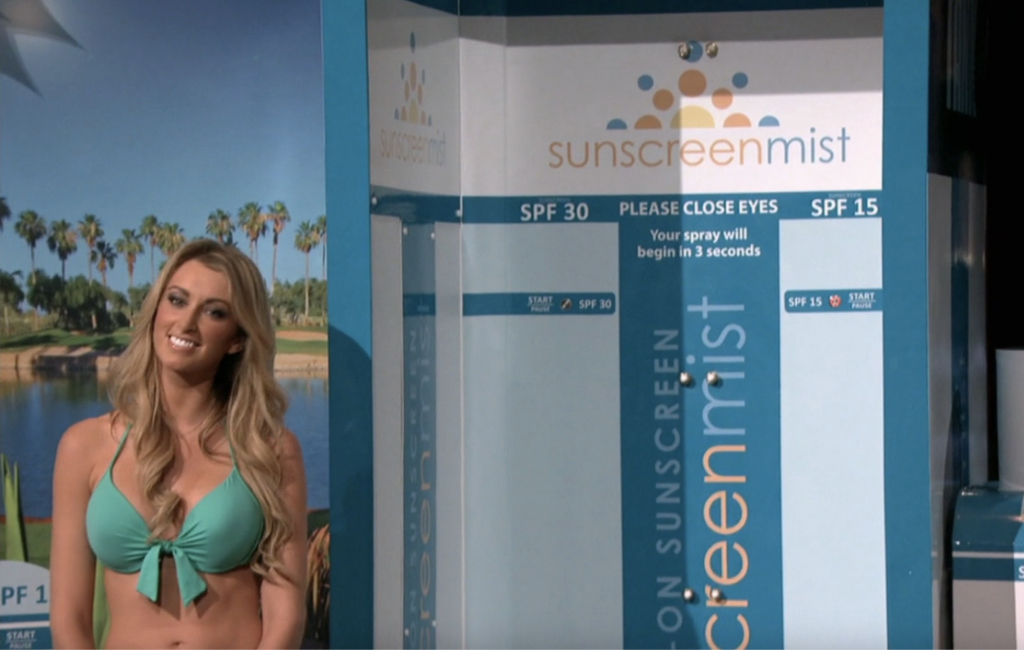
The Product
Sunscreen Mist offers a revolutionary solution to the challenges associated with traditional sunscreen application. The product lineup includes two main models: booths and stations. The booths operate in a user-friendly, three-step process. First, users insert payment, with the machines accepting various forms such as cash, credit cards, and even hotel room keys. Second, individuals choose their preferred lotion. Finally, they close their eyes and receive a full-body mist in just seconds.
This efficient process ensures the application of the FDA-recommended amount of sunscreen, eliminating the need for intricate and often incomplete manual application. For the station model, Sunscreen Mist targets venues such as theme parks, zoos, outdoor festivals, and golf courses. The stations simplify the process further, allowing users to point and protect specific areas, offering a convenient alternative for on-the-go sun protection.
The lotions used are designed not to stain clothing, being water and aloe vera-based. Sunscreen Mist aims to provide a hassle-free solution to sunscreen application, emphasizing convenience, effectiveness, and broad applicability in various settings. Customers can purchase the machines directly or lease them, making them accessible to entrepreneurs and larger corporations alike.
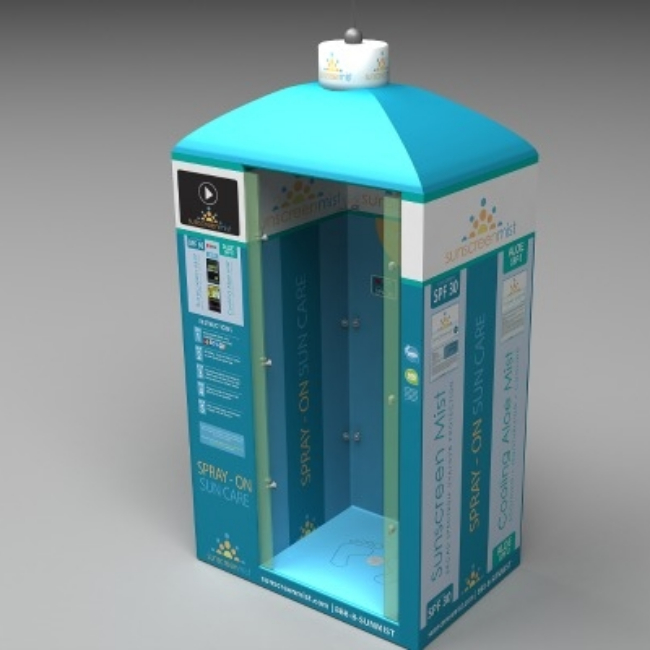
How It Went
The company’s position before Shark Tank
Sunscreen Mist has positioned itself in the sun protection market with a notable performance in the last three months. The company claims to have generated $325,000 in this period, demonstrating a promising start. The sales have primarily come from 12 units sold to seven different customers, with exclusive distributors committing to purchasing a specific number of machines. The company has strategically partnered with exclusive distributors. These distributors play a crucial role in expanding the reach of Sunscreen Mist’s innovative machines.
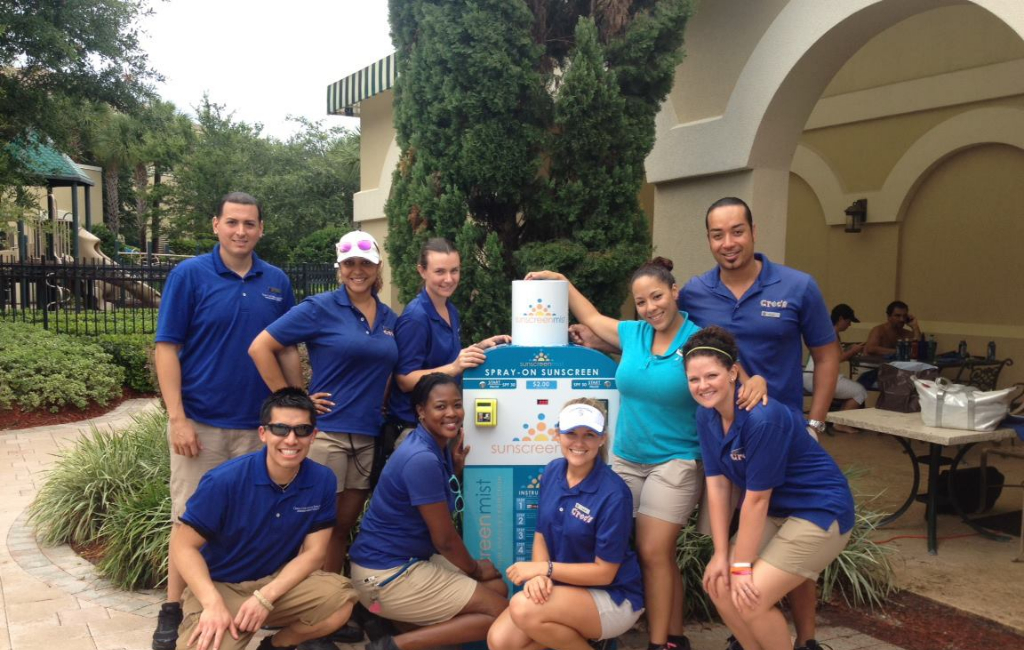
Additionally, the founders mentioned being in talks with one of the largest companies specializing in vending programs with hotel chains globally, indicating potential collaborations with major players in the hospitality industry. The claimed revenue of $325,000 in the last three months suggests a positive financial trajectory. The company is structured to accommodate two main models of its product, booths, and stations, each catering to different market segments. The founders have positioned Sunscreen Mist as a versatile solution for various settings, from theme parks and zoos to outdoor festivals and golf courses. Regarding funding, the entrepreneurs mentioned two primary avenues.
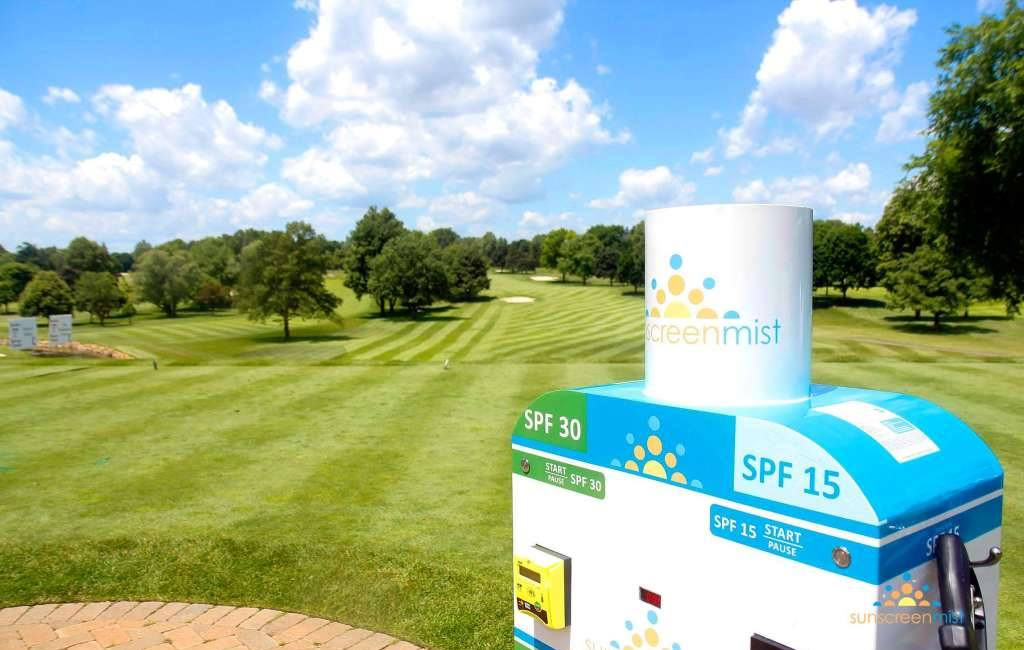
Firstly, they engage with entrepreneurs or individuals who wish to lease and operate the machines in specific locations. This leasing model allows for rapid distribution and adoption of their product. Secondly, Sunscreen Mist pursues direct deals with large corporations, providing them with an alternative revenue stream through the sale of their machines. The company’s strategy involves both leasing to entrepreneurs and dealing directly with major corporations, showcasing a flexible approach to market penetration. The focus on diverse customer segments, from individual entrepreneurs to large enterprises, reflects the founders’ commitment to making Sunscreen Mist accessible and impactful in different contexts.
The Negotiations:
The negotiations for Sunscreen Mist on Shark Tank presented a mix of interest, skepticism, and ultimately, rejection from the Sharks. The entrepreneurs, Tony Fayne and Josh Kaplan, sought a $400,000 investment in exchange for a 15% equity stake in their company. Despite the initial excitement and intrigue about the innovative nature of their sunscreen application machines, the Sharks raised critical questions about the company’s business model and proof of concept. Mark Cuban and Kevin O’Leary expressed concerns about the complexity of Sunscreen Mist’s approach, with Cuban comparing it to the ATM business, where entrepreneurs lease or sell the machines to operators. Lori Greiner and Barbara Corcoran focused on the lack of retail customers and proof of concept, questioning the entrepreneurs about their market presence.
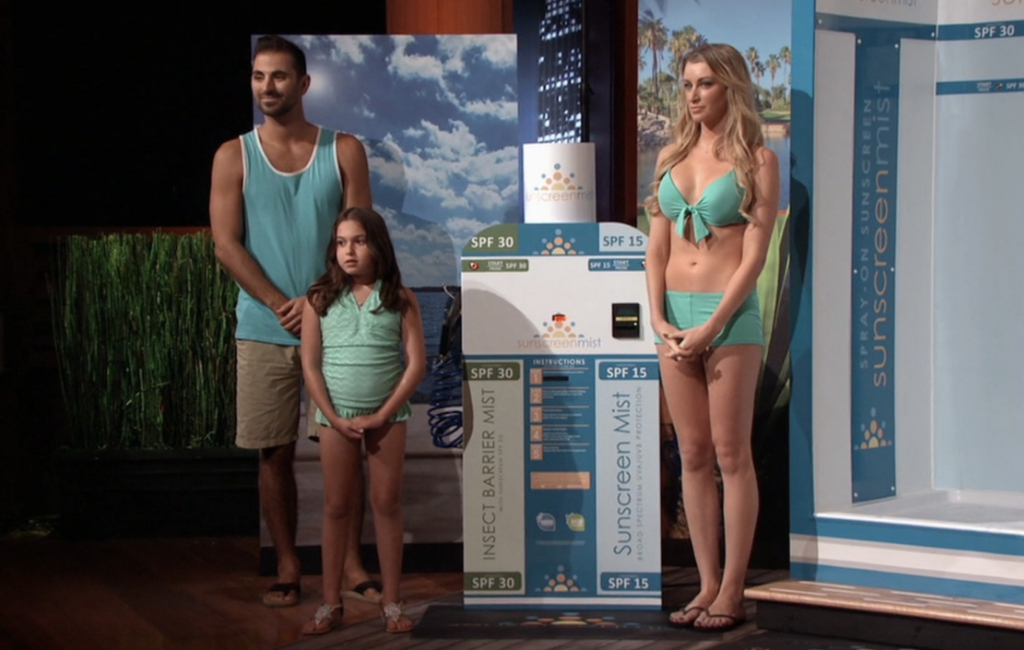
The negotiation process faced challenges as the Sharks probed deeper into the company’s operations, costs, and distribution models. The founders explained their two-pronged approach, engaging entrepreneurs for leasing and directly dealing with large corporations. However, the complexity and lack of clarity in their responses led to increasing skepticism. Despite the founders’ claim of $325,000 in revenue in the last three months and successful proof of concept at events like the Governor’s Ball, the Sharks were not convinced.
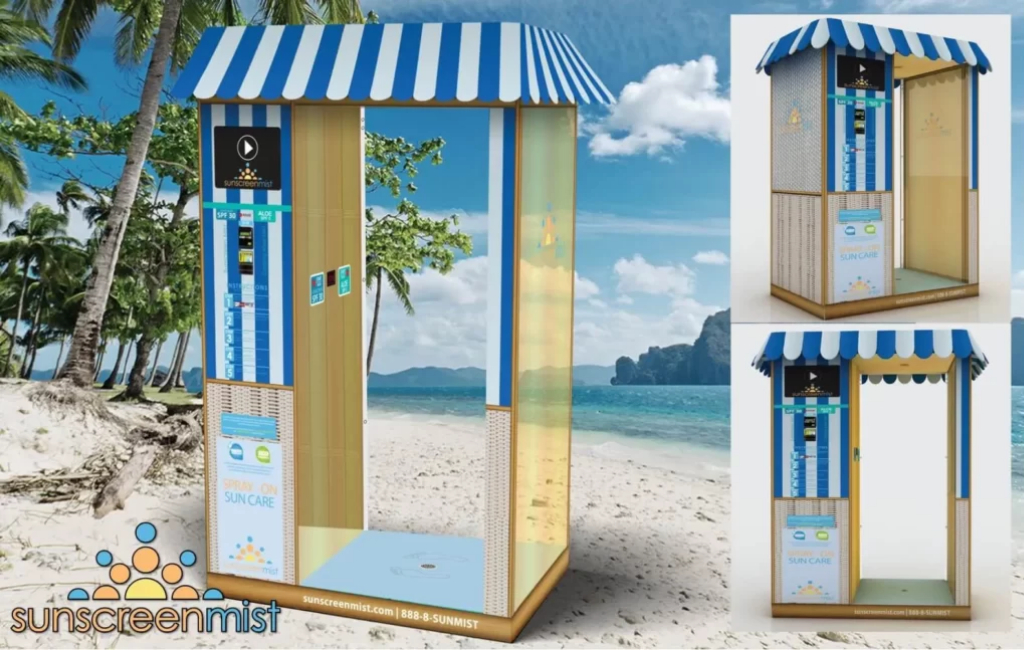
Mark Cuban, in particular, pointed out the seemingly exaggerated nature of the entrepreneurs’ statements, emphasizing the need for simplicity in the business plan. In the end, none of the Sharks were willing to make an offer. One by one, they opted out, citing concerns about the business’s complexity, proof of concept, and the entrepreneurs’ previous approach of charging for a two-year proof of concept. The rejection reflected the Sharks’ collective decision that the Sunscreen Mist business did not align with their investment criteria. The entrepreneurs left the Tank without securing an investment but with valuable feedback on refining their business model for future success.







